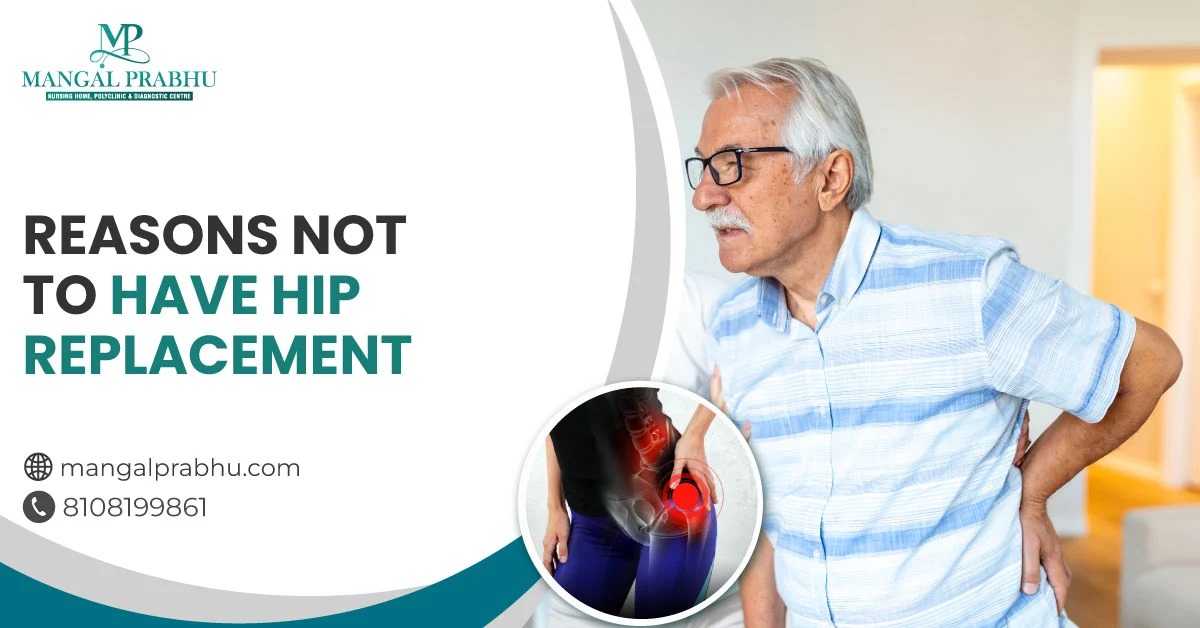
Do you have constant hip pain that won’t resolve with over-the-counter medication, therapy, or non-invasive medical procedures? Are you diagnosed with arthritis? People with worn-out hip joints might experience severe pain in their hips, which worsens when you move, lift objects, or practice strenuous physical exercise that involves your hip joint.
A hip replacement surgeon in Navi Mumbai will most likely recommend a surgical removal of the damaged joint and its replacement with an artificial implant made of plastic, ceramic, or metal. But is it the right choice? Let’s find out.
Potential Risks and Complications
Hip replacement has many benefits. It helps you regain your mobility. Total hip replacement strengthens your hip joint and makes movements easier and painless. But like any invasive procedure, hip replacement doesn’t come without risks.
It’s important to weigh the risks and benefits before proceeding with hip replacement. Let’s explore the common risks and complications of the surgery.
1) Infection:
Although your surgeon will use sterile equipment and prescribe antibiotics, there’s still a possibility of infection post-surgery. If the infection goes deep near the prosthesis, another surgery might be required to replace the infected portion with a new implant.
2) Blood Clot:
Lack of movement after surgery can put you at risk of Pulmonary Embolism (PE) — a medical condition in which the blood clot travels to your lungs, blocking the blood flow. You must start a movement within 24-48 hours after surgery. Your healthcare provider will recommend blood thinners to prevent blood clots.
3) Dislocation of Implants:
The tissues around the incision site take time to heal. During this time, they might not be strong enough to provide support to the artificial implants. If you move too much, bend a lot, or practice stretching and other movements, there’s a risk of joint dislocation. A surgery is required to re-position your artificial hip joints.
4) Nerve Damage:
Nerve damage is a rare but possible complication of hip replacement surgery. Damage to the surrounding nerves can make the affected site numb, weak, and painful.
Alternative Treatment Options
If you are not a good candidate for hip replacement or are simply looking for alternative treatment options, a few non-invasive procedures can help improve your mobility. Here’s what may help.
- Weight loss plans to prevent excess strain on your hip joint
- Physical exercise, like walking and swimming, to strengthen your hip joint, regain your mobility, and maintain flexibility
- Use canes, crutches, and other walking aids to offer relief to the damaged hip
- Pain relief and anti-inflammatory medication
- Acupuncture and massage therapy for pain relief
Long-Term Considerations
Mild stiffness and pain around the incision site are pretty common. They resolve on their own within a few weeks following surgery. Remember, the implants used to replace the damaged joints can wear in 5-10 years or sooner, depending on the material used and your movements. Some patients develop an allergic reaction to the implant material, requiring a revision surgery.
Hip replacement surgery in Navi Mumbai is beneficial for patients with extreme pain and loss of mobility, but you should always opt for noninvasive procedures first.
